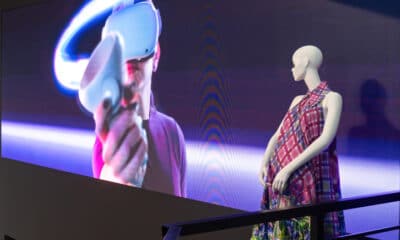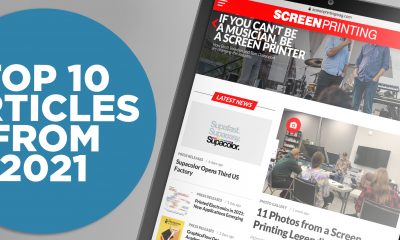Everyone reading this, raise your hands.
Everyone reading this, raise your hands.
Now, those of you who have never had some variation of the following scenario happen to you, can lower them: You’re at a cocktail party. You exchange pleasantries with a new acquaintance and, after explaining what you do for a living, you notice their expression changes. They look surprised; they look away; perhaps they just stare back vacantly as though they think they may have misheard you. Or, depending on how many cocktails they’ve enjoyed, they tell you matter-of-factly that a career change may be in order because print is a dying industry.
OK. How many hands are still up in the air? Just about all of them, I’d wager.
It has happened to most of us. It has happened to me, and I’m not a printer myself. I recall being at a publishing conference around 1998 and seeing Bill Gates do exactly the same sort of double-take after an attendee confidently predicted that most of the people in the room would still be earning their livings from print in 20 years. Gates, clearly, disagreed.
Advertisement
Perhaps the most frustrating thing about such encounters is that from the layperson’s perspective, the notion that print is passé is pretty much irrefutable. At least until 3D printing captured the public’s attention and scored a plug in a State of the Union address a few years ago, the only associations most people had with print suggested decay. Many of the quick printing businesses that used to dot every commercial district aren’t there any longer. Much of the printed material that was ubiquitous just 10 years ago – bank statements, catalogs, newspapers, direct mail promotions, bills, business forms – has all but vanished.
But this is the print that was. This is not the print that is, or that will be.
I’ve just returned from Germany and drupa, the international print exhibition held on such a mind-bogglingly grand scale that attempting to describe it is pointless. Instead, I’ll share a few facts. The exhibition – with 19 tradeshow halls measuring over 2.5 million square feet – was sold out. More than a quarter of a million people from 188 countries attended. Veterans of multiple drupas (like me – it was my sixth) agreed that no recent exhibition showcased such revolutionary printing technology. A dying industry cannot possibly mount such an exhibition. Print is alive, and perhaps as big as it ever has been.
And what about the print that will be? Based on what I saw in Germany, it’s going to be extraordinary. It will be highly automated. It will blend analog and digital technologies, customized for specific application needs. It will encompass smart packaging, additive manufacturing, printed electronics, and highly personalized goods across the entire range of consumer and industrial products. It will be just as omnipresent in our lives as it was before anyone dreamed of interconnected electronic devices and paperless societies, in ways that most consumers can’t even imagine. And it will look more than a little familiar to those of us who have given the “think about all of the printed things in your car” speech to those who question the ongoing relevance of what we do for a living.
Read more from our June/July 2016 issue.

 Art, Ad, or Alchemy2 months ago
Art, Ad, or Alchemy2 months ago
 Case Studies1 month ago
Case Studies1 month ago
 Andy MacDougall2 months ago
Andy MacDougall2 months ago
 Columns2 weeks ago
Columns2 weeks ago
 Editor's Note2 weeks ago
Editor's Note2 weeks ago
 Marshall Atkinson2 weeks ago
Marshall Atkinson2 weeks ago
 Thomas Trimingham2 months ago
Thomas Trimingham2 months ago
 News & Trends1 month ago
News & Trends1 month ago















